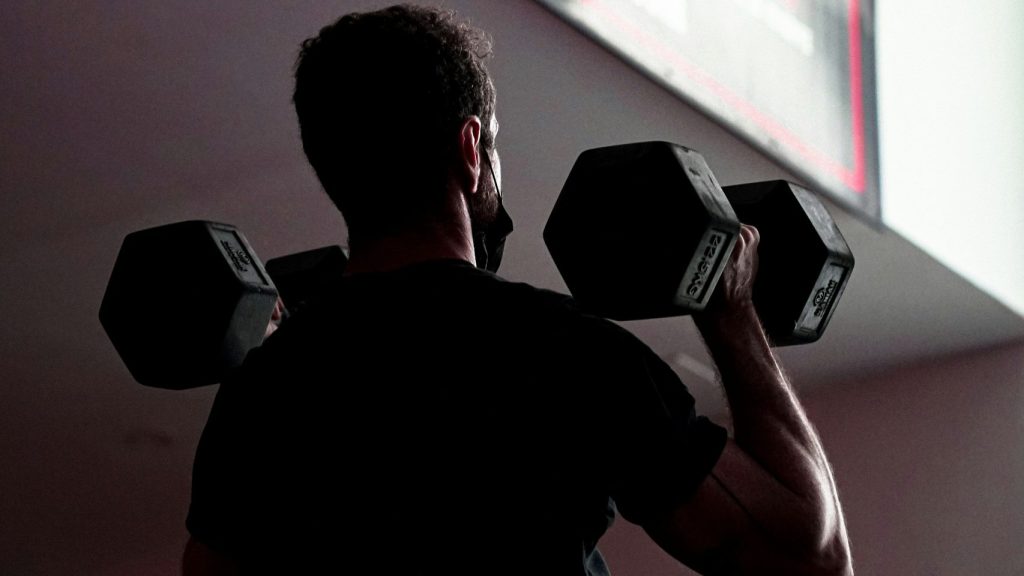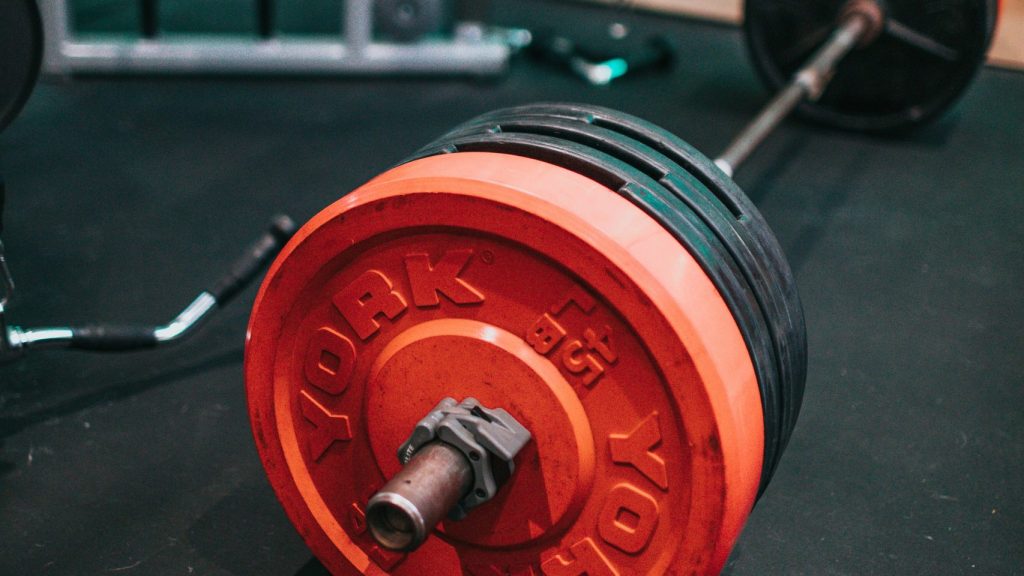Table of Contents
In the field of fitness, effective muscle building encompasses more than just exercise routines; it also involves critical recovery processes, particularly through sleep. Understanding how sleep contributes to muscle recovery and growth is essential for athletes and fitness enthusiasts seeking to optimize their physical development. This article will explore the scientific relationship between sleep and muscle health, offering practical advice on how to leverage sleep for enhanced muscle recovery and growth.
“Did you know that optimizing your sleep can increase muscle synthesis rates and decrease recovery time? How does sleep actually contribute to muscle growth?”
This introduction sets the stage for a deeper look into the pivotal role of sleep in muscle building across several key areas:
- Understanding Sleep and Muscle Recovery: We will cover the physiological processes that occur during sleep that are crucial for muscle repair and growth, focusing on the roles different sleep stages play in these processes and the consequences of sleep deprivation.
- Optimizing Sleep Environment for Muscle Gain: We will offer advice on how to create ideal conditions for sleep that can enhance your muscle recovery rates. This includes tips on the optimal bedroom environment to support deep, restorative sleep.
- Diet and Nutrition for Better Sleep Quality: This section will discuss the optimal dietary practices that promote better sleep and muscle recovery, highlighting how timing and content of meals can affect sleep quality.
- Sleep Schedules and Muscle Building Efficiency: We will explain how to coordinate your sleep schedule with your training to maximize muscle gains, including the benefits of napping and the best times for sleep.
- Monitoring and Adjusting Sleep for Peak Performance: Utilizing modern technology and sleep tracking tools, this section will guide you on how to analyze and adjust your sleep patterns for improved fitness outcomes. We will provide strategies for personalizing sleep schedules to meet individual recovery needs.
Sleep Optimization for Muscle Building
Learn how improving your sleep environment and aligning your sleep schedules with your exercise routines can significantly impact muscle growth and recovery. This article provides detailed strategies to help you use sleep effectively as part of your fitness regimen. It is designed for both new and experienced fitness enthusiasts who are keen to integrate sleep into their overall health and physical development strategy.
Understanding Sleep and Muscle Recovery
Understanding the relationship between sleep and muscle recovery is crucial for anyone looking to enhance their physical fitness and muscle growth. Sleep serves as a critical period where the body engages in essential recovery and rebuilding processes, crucial for athletes and fitness enthusiasts. This section explores the roles of various sleep stages in muscle repair, the consequences of sleep deprivation on muscle gains, and the specific sleep cycles most beneficial for muscle recovery.
The Science of Sleep and Muscle Repair
Sleep acts as a significant recovery tool, facilitating natural anabolic processes where the body repairs and strengthens muscle tissue. During sleep, the body conducts essential functions such as protein synthesis, metabolic waste removal, and energy restoration. The release of growth hormone during deep sleep stages is vital in stimulating muscle growth and repairing tissue damage from intense physical activity. Adequate sleep is essential as it allows these crucial maintenance tasks to occur effectively.
How Sleep Deprivation Affects Muscle Growth
Insufficient sleep significantly impairs muscle growth and overall health. Sleep deprivation disrupts the balance of growth hormones and elevates cortisol levels, a stress hormone that promotes muscle breakdown. Research indicates that inadequate sleep results in decreased muscle strength and slower recovery rates, adversely affecting performance and increasing injury risks. Furthermore, sleep deprivation impacts cognitive functions, such as focus and decision-making, impairing an athlete’s performance capabilities. It also affects appetite hormones, leading to increased hunger and caloric intake, potentially resulting in weight gain and decreased fat loss.
Visual Table: Effects of Sleep Deprivation
| Effects of Sleep Deprivation | Impact on Fitness |
|---|---|
| Decreased Muscle Strength | Reduces lifting capacity and endurance |
| Slower Recovery Rates | Increases risk of injuries and prolongs training cycles |
| Increased Cortisol Levels | Can lead to muscle breakdown and fat gain |
| Impaired Cognitive Functions | Decreases focus and decision-making, affecting performance |
Optimal Sleep Stages for Muscle Recovery
Deep sleep and REM sleep are critical for effective muscle recovery. Deep sleep, or slow-wave sleep, is highly rejuvenative, marked by the significant release of growth hormone crucial for muscle repair and growth. Achieving sufficient deep sleep ensures that the body can fully engage in recovery processes. REM sleep also supports physical well-being, maintaining muscle memory and aiding in the learning of new motor skills, important for athletes seeking to enhance performance and skill.
“During deep sleep, the body releases the most growth hormone, essential for muscle repair and growth.”
Achieving a balanced sleep cycle that includes both deep and REM sleep is recommended to maximize muscle recovery. Strategies such as maintaining a consistent sleep schedule, creating a restful sleeping environment, and avoiding stimulants like caffeine and electronics before bedtime can enhance sleep quality, thereby optimizing muscle recovery and overall fitness.
Understanding the significant role of sleep in muscle recovery is essential for optimizing fitness regimens. By recognizing how different sleep stages contribute to muscle repair and the adverse effects of sleep deprivation, individuals can make informed decisions to improve sleep quality for enhanced muscle growth. Further sections will discuss how to optimize the sleep environment to support muscle recovery effectively. This knowledge not only aids in building muscle more efficiently but also improves overall health and athletic performance.

Optimizing Sleep Environment for Muscle Gain
Optimizing the sleep environment is crucial for enhancing muscle recovery and overall fitness performance. Properly adjusting bedroom conditions can significantly improve sleep quality, which directly impacts muscle repair and growth. This section details the specific elements of an ideal sleep environment, from temperature and lighting to the use of certain products that promote a restful night’s sleep.
The Best Sleep Conditions for Recovery
The quality of your sleep environment significantly affects your ability to reach and maintain deep sleep, where most muscle repair occurs. Temperature plays a vital role; cooler room temperatures, ideally around 65 degrees Fahrenheit (18 degrees Celsius), help lower the body’s core temperature, facilitating the onset of sleep and promoting uninterrupted sleep cycles.
Research suggests that the ideal room temperature for optimal sleep is around 65 degrees Fahrenheit (18 degrees Celsius).
Light exposure is another critical factor. Excessive exposure to light, particularly blue light from electronic devices, can disrupt melatonin production, the hormone responsible for sleep regulation. Implementing measures such as using blackout curtains to block external light and dimming indoor lights before bedtime can promote better melatonin production, enhancing sleep quality.
Noise control is equally important. Unpredictable noises can prevent the body from reaching deeper sleep stages essential for muscle recovery. Employing white noise machines or earplugs can help maintain a consistent sound environment conducive to sleep.
Tools and Products to Improve Sleep Quality
Various tools and products available in the market are designed to enhance sleep by optimizing environmental conditions. Here are some effective tools:
- Blackout curtains: Block external light sources, crucial in urban areas where light pollution can interfere with sleep.
- White noise machines: Create a soothing background noise that masks disruptive sounds from the environment.
- High-quality mattresses and pillows: Provide necessary support for the body, aligning the spine and neck correctly to prevent discomfort and disturbances during sleep.
Investing in these tools can significantly contribute to creating an optimal sleep environment that supports deep and restful sleep, crucial for muscle recovery and growth.
The Impact of Sleep Aids on Muscle Growth
While environmental adjustments are foundational, some individuals might consider supplementing their efforts with sleep aids. The use of sleep aids, from natural supplements like melatonin to prescription sleep medications, requires careful consideration. Melatonin supplements can help adjust sleep cycles and are generally safe for short-term use. However, their effectiveness is maximized when combined with good sleep practices.
Prescription sleep medications should be used cautiously as they can have side effects, including the suppression of REM sleep, which is vital for both cognitive functions and muscle recovery. The ideal approach is to use any sleep aid under medical supervision and as a component of a holistic strategy to improve sleep.
Optimizing the sleep environment is essential for muscle recovery and overall fitness. Enhancing sleep quality through appropriate environmental adjustments and tools supports better sleep cycles, directly impacting muscle repair and growth. By ensuring the sleep environment is conducive to rest, individuals can maximize their recovery and fitness results. This section has provided actionable insights into creating an optimal sleep environment, setting the stage for discussions on how diet and nutrition can further support muscle-building efforts.

Diet and Nutrition for Better Sleep Quality
Proper diet and nutrition are essential for enhancing sleep quality, which significantly impacts muscle recovery and growth. The appropriate intake of specific nutrients, strategic meal timing, and the avoidance of certain disruptive substances can optimize sleep patterns and enhance muscle repair processes overnight.
Nutrients That Enhance Sleep Quality
Certain nutrients are known to improve sleep quality significantly. Magnesium, for instance, serves as a natural relaxant and is involved in numerous bodily functions, including sleep regulation. Consuming foods rich in magnesium, such as almonds, spinach, and pumpkin seeds, can facilitate better sleep. Tryptophan, an amino acid found in turkey, chicken, and milk, is utilized by the body to produce serotonin, which is then converted into the sleep hormone, melatonin.
Omega-3 fatty acids, which are abundant in fish like salmon and in nuts like walnuts, increase melatonin production, thus aiding sleep quality. Including these nutrients in your diet can notably enhance the quality of your sleep, which is essential for effective muscle recovery.
Dietary supplements can also augment sleep quality. Melatonin supplements, for instance, are commonly used to regulate sleep cycles, especially in individuals dealing with jet lag or irregular sleep patterns due to shift work. Another beneficial supplement is valerian root, known for its sedative properties that can improve sleep quality.
“Magnesium acts as a natural relaxant and is involved in over 300 enzymatic reactions in the body, including those that help regulate sleep.”
Timing Meals for Optimal Sleep and Muscle Recovery
Meal timing can profoundly influence sleep quality and muscle recovery. Eating heavy meals right before bedtime can lead to discomfort and indigestion, disrupting sleep. However, consuming a small, nutrient-dense snack a few hours before bed can stabilize blood sugar levels overnight, supporting uninterrupted sleep and muscle repair.
For instance, combining Greek yogurt with a small portion of berries in the evening provides tryptophan and fiber, aiding melatonin release and improving sleep quality. Similarly, whole-grain crackers with cottage cheese deliver essential nutrients for muscle repair and recovery throughout the night.
| Time of Day | Food Suggestion | Benefit |
|---|---|---|
| Evening | Greek yogurt with small berries | Stabilizes blood sugar, supports melatonin release |
| Evening | Whole-grain crackers with cottage cheese | Provides tryptophan and complex carbohydrates for muscle repair |
Avoiding Sleep-Disruptive Substances
Stimulants like caffeine and nicotine are well-known for disrupting sleep patterns. Caffeine, found in coffee, tea, chocolate, and many sodas, can delay the onset of sleep and reduce the duration and quality of sleep. Avoiding caffeine close to bedtime and moderating consumption during the day can help mitigate its sleep-disruptive effects.
Nicotine, a stimulant found in cigarettes, also significantly impairs sleep quality, often causing difficulty in falling asleep and increasing nighttime awakenings. Reducing or eliminating nicotine can greatly enhance sleep quality and overall health.
Alcohol, though often considered a sleep aid, actually disrupts sleep cycles, particularly during the second half of the night, decreasing sleep quality and interfering with the body’s ability to perform muscle repairs. Limiting alcohol consumption, especially before bedtime, is crucial for maintaining high-quality sleep and effective muscle recovery.
Specific dietary practices can significantly enhance sleep quality and muscle recovery. By incorporating nutrients that facilitate better sleep, optimizing meal timing, and avoiding substances that disrupt sleep, individuals can effectively support their muscle growth through improved sleep. This dietary strategy not only helps in building muscle but also improves overall health and wellbeing. Continue reading to discover how aligning sleep schedules with training regimens can maximize muscle-building efficiency.

Sleep Schedules and Muscle Building Efficiency
Optimal sleep scheduling is essential for maximizing muscle growth and enhancing overall fitness. The strategic alignment of sleep duration and timing can improve muscle recovery and increase athletic performance. This section details the critical roles of sleep schedules in optimizing muscle building and offers practical advice for incorporating effective sleep practices into training routines.
Ideal Sleep Duration for Muscle Builders
Athletes require adequate sleep to facilitate muscle recovery and promote growth hormone release. Experts generally recommend 7 to 9 hours of sleep per night for adults, but athletes engaged in intense training may benefit from more to support recovery processes effectively. It is crucial to maintain uninterrupted sleep cycles as these allow the body to progress through essential phases of sleep, including deep sleep when most muscle repair and growth occur. Inadequate sleep can interrupt these cycles, leading to insufficient recovery, increased fatigue, and reduced performance. Athletes should therefore prioritize establishing a consistent sleep schedule that ensures they obtain sufficient, high-quality sleep nightly.
Benefits of Napping for Muscle Recovery
Napping can be an effective strategy to supplement nighttime sleep and enhance muscle recovery for athletes. Properly timed naps can provide significant benefits, especially for those with demanding training schedules who may not always obtain adequate nighttime sleep.
- Short naps (20-30 minutes): Enhance alertness and performance without causing grogginess or interfering with nighttime sleep.
- Longer naps (up to 90 minutes): Allow completion of a full sleep cycle, including REM sleep, supporting cognitive functions and physical recovery.
Aligning Sleep with Training Schedules
Synchronizing sleep schedules with training activities is vital for optimal muscle recovery and performance. Athletes should adjust their sleep patterns to correlate with the intensity of their training regimes. For example, during periods of intense training or leading up to competitions, increasing sleep duration can help manage the added physical stress and promote better recovery.
Adjusting sleep times around travel and competition schedules is also critical, especially when dealing with time zone changes. Athletes can minimize the effects of jet lag by gradually adjusting their sleep schedules a few days before departure to better align with the destination time zone. This preparation helps maintain peak performance levels and supports quicker adaptation to new environments.
“Most experts recommend that adults get between 7 to 9 hours of sleep per night, but athletes, especially those in heavy training, might need more to allow their bodies to recover properly.”
In summary, effective sleep scheduling is as crucial as physical training for achieving peak muscle growth and fitness performance. By tailoring sleep duration and timing to training demands, athletes can maximize recovery and enhance performance. This approach not only aids in muscle building but also supports overall health and well-being. Further exploration of continuous monitoring and adjustment of sleep patterns can provide additional benefits for optimizing performance.

Monitoring and Adjusting Sleep for Peak Performance
Monitoring and adjusting sleep patterns is critical for athletes aiming to achieve peak performance. Modern technologies like sleep trackers and apps are essential tools for assessing sleep quality, duration, and patterns, enabling athletes to tailor their sleep strategies to enhance their performance and recovery effectively.
Using Sleep Trackers and Apps
Sleep trackers and apps are instrumental for athletes to monitor various aspects of sleep. These devices use sensors and software to collect data on sleep duration, quality, and stages, providing insights that are crucial for optimizing sleep routines. For athletes, specific features of these tools can track how training loads affect sleep quality or how pre-competition stress impacts sleep duration. This data is vital for making informed adjustments to sleep habits to ensure optimal rest and recovery.
Analyzing Sleep Data for Recovery Improvement
Data from sleep trackers is invaluable for identifying trends and patterns that affect an athlete’s recovery and performance. By analyzing this data, athletes and coaches can pinpoint how variations in training intensity impact sleep quality. For instance, data might show that intense training sessions lead to disrupted sleep patterns, suggesting a need for adjusted training loads or improved recovery strategies.
“Effective data analysis involves looking at long-term trends to understand the broader impact of sleep on training and recovery cycles, helping athletes adjust their sleep schedules to better align with training demands.”
Analyzing sleep data allows athletes to modify their sleep schedules to maximize recovery periods, thus preventing overtraining and enhancing overall performance. Adjustments might include changing bedtime routines, managing light exposure, or incorporating relaxation techniques to improve sleep quality.
Tailoring Sleep to Individual Fitness Needs
- Evening Trainers: Should employ relaxation techniques such as yoga or meditation to help transition to sleep, ensuring recovery after intense training.
- Morning Trainers: Need to prioritize an earlier bedtime to accommodate early training sessions without sacrificing sleep quality.
- Travel Adjustments: Should plan for gradual sleep schedule adjustments before traveling across time zones to reduce jet lag’s impact.
Adjusting sleep strategies based on individual training and competition schedules ensures that athletes maintain optimal performance levels. Personalized plans must also consider environmental factors, such as noise and light, and utilize strategies to mitigate their impact on sleep.
Using modern tools to monitor and analyze sleep patterns is essential for athletes to optimize their performance. By applying data-driven insights and personalizing sleep strategies, athletes can significantly enhance their recovery rates and athletic output. These techniques allow for sustained performance improvements and help maintain overall health and fitness. Athletes are encouraged to integrate these strategies into their daily routines to fully realize the benefits of optimized sleep.

Conclusion: Sleep Optimization for Muscle Building
This article has thoroughly explored the critical role of sleep in enhancing muscle building and optimizing athletic performance. It has provided insights into how effectively managing sleep can contribute to better muscle recovery, growth, and overall fitness.
Understanding Sleep and Muscle Recovery
The discussion began by addressing how essential proper sleep is for muscle recovery. We delved into the physiological processes that occur during sleep, particularly during deep sleep stages, where growth hormones are released, facilitating muscle repair and growth. Insufficient sleep disrupts these processes, leading to decreased performance and longer recovery times.
Optimizing Sleep Environment for Muscle Gain
Next, we examined the importance of creating an optimal sleep environment to enhance sleep quality, which is crucial for effective muscle recovery. Key factors such as maintaining a cool, quiet, and dark environment can significantly improve the quality of sleep, thereby aiding in faster and more efficient muscle recovery.
“Implement the strategies discussed to enhance your muscle recovery, boost your performance, and achieve your peak physical potential.”
Diet and Nutrition for Better Sleep Quality
The article also highlighted the impact of diet and specific nutrients on sleep quality. Nutrients such as magnesium, omega-3 fatty acids, and tryptophan are essential for promoting better sleep. By incorporating foods rich in these nutrients into their diets, athletes can improve their sleep quality, which in turn supports muscle recovery.
Sleep Schedules and Muscle Building Efficiency
We also discussed the significance of aligning sleep schedules with training routines. Proper sleep timing and duration synchronized with training demands can maximize recovery and enhance athletic performance. This strategic alignment helps in maintaining peak performance levels and adapting more quickly to training demands.
Monitoring and Adjusting Sleep for Peak Performance
Finally, the use of modern sleep tracking technologies was explored. These tools enable athletes to monitor and analyze their sleep patterns and make informed adjustments to their sleep strategies. Personalizing sleep based on individual needs using data from sleep trackers can lead to significant improvements in recovery rates and athletic performance.
- Sleep and Muscle Recovery: Essential for effective muscle repair and growth hormone release.
- Optimizing Sleep Environment: Key to enhancing sleep quality and supporting recovery.
- Diet and Nutrition: Critical for improving sleep quality through nutrient intake.
- Sleep Schedules: Important for synchronizing sleep with training to maximize recovery.
- Monitoring and Adjustment: Vital for personalizing sleep strategies through modern technologies.
In summary, the management of sleep is as crucial as physical training for achieving optimal muscle growth and fitness. By implementing the strategies discussed throughout this article, fitness enthusiasts can not only improve their sleep quality but also experience significant enhancements in muscle recovery and athletic performance. This comprehensive approach to sleep management ensures that athletes can maintain optimal health and achieve their highest potential in sports and fitness.
Citations:
- Nobari, H., Banihashemi, M., Saedmocheshi, S., Prieto-González, P., & Oliveira, R. (2023). Overview of the impact of sleep monitoring on optimal performance, immune system function and injury risk reduction in athletes: A narrative review. Science Progress, 106(4), 00368504231206265. https://doi.org/10.1177/00368504231206265
- Ramos-Campo, D. J., Martínez-Aranda, L. M., AndreuCaravaca, L., Ávila-Gandía, V., & Rubio-Arias, J. Á. (2021). Effects of resistance training intensity on sleep quality and strength recovery in trained men: A randomized cross-over study. Biology of Sport, 38(1), 81–88. https://doi.org/10.5114/biolsport.2020.97677
- Vitale, K. C., Owens, R., Hopkins, S. R., & Malhotra, A. (2019). Sleep hygiene for optimizing recovery in athletes: Review and recommendations. International Journal of Sports Medicine, 40(8), 535–543. https://doi.org/10.1055/a-0905-3103
- Klier, K., Dörr, S., & Schmidt, A. (2021). High sleep quality can increase the performance of CrossFit® athletes in highly technical- and cognitive-demanding categories. BMC Sports Science, Medicine and Rehabilitation, 13(1), 137. https://doi.org/10.1186/s13102-021-00365-2